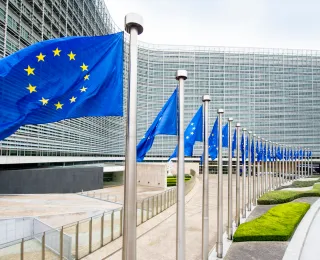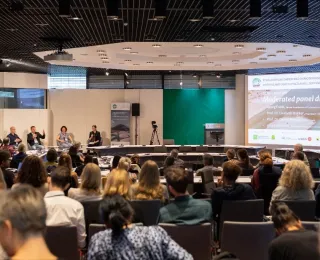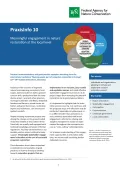Europe
EU nature conservation policy
The EU Biodiversity Strategy for 2030 aims to put biodiversity in the EU member states on a path to recovery by 2030, for the benefit of humankind, the climate and the planet. Various directives and regulations constitute the legal framework for nature conservation at EU level. Notable among these are the Birds Directive and the Habitats Directive, which together establish the Natura 2000 network of protected areas, and the EU Nature Restoration Law adopted in June 2024. Examples of BfN activities include carrying out research and development projects to provide the scientific basis for EU nature conservation policy, supporting policymaking processes and contributing the BfN’s subject-matter expertise in various EU committees and working groups.

Working together to implement the Nature Restoration Law in Europe
The EU Nature Restoration Law provides among other things for restoration measures to be put in place by 2030 covering at least 20% of land and sea areas in the EU. Its aim is to contribute to biodiversity conservation, enhance ecosystem resilience and support natural climate change mitigation.
In late 2023, the BfN hosted an international expert workshop entitled “Making people part of ecosystem restoration in Europe” to develop concrete recommendations for implementing restoration projects across Europe using inclusive and participatory approaches that constructively manage conflicts of interest and promote acceptance. Compiled in various formats for users, policymakers and the general public, the outcomes have been available online since summer 2024. The BfN also contributes to the coordinated and effective implementation of the EU Nature Restoration Law in regional cooperation, for example by facilitating professional and policy exchange on the subject of nature restoration among the contracting parties to the Alpine Convention. At national level, the BfN is involved in the implementation of the EU Nature Restoration Law in a wide variety of ways, including expert support in the development of a national restoration plan.
weiterführender Inhalt

Exchange of experiences at European level
In organising European conferences and workshops, BfN fosters exchange of experience at European level. This largely focuses on fostering exchange on relevant nature conservation topics and better networking among scientists, policymakers and practitioners. For example, since 2011 and in cooperation with the Network of Heads of European Nature Conservation Agencies (ENCA), BfN has organised a series of European Conferences on Biodiversity and Climate Change. The fifth conference in the series, entitled “Riverine and coastal wetlands for biodiversity and climate – linking science, policy and practice”, had be held in Bonn from 26 to 28 September 2023.

Cooperation with other Eastern European partner countries
As part of the BMUKN’s Advisory Assistance programme, the BfN primarily supports nature conservation projects in Eastern European countries, the Caucasus and Central Asia. In addition, the BfN International Nature Conservation Academy provides further training for young nature conservation leaders from these priority regions under the Klaus Töpfer Fellowship Programme.
Until February 2022, the BfN also supported nature conservation projects in Russia as part of bilateral cooperation.
European agreements with nature conservation relevance
BfN also supports the nature conservation aspects of a range of European agreements under international law. These include the Convention on the Protection of the Alps (Alpine Convention), the Carpathian Convention, the Convention on the Protection of the Marine Environment of the Baltic Sea Area (Helsinki Convention), the Convention for the Protection of the Marine Environment of the North-East Atlantic (OSPAR Convention) and several conventions for the conservation of migratory species. BfN works to ensure further development and implementation of these conventions, plays an active role in committees and other bodies, and promotes related projects.

